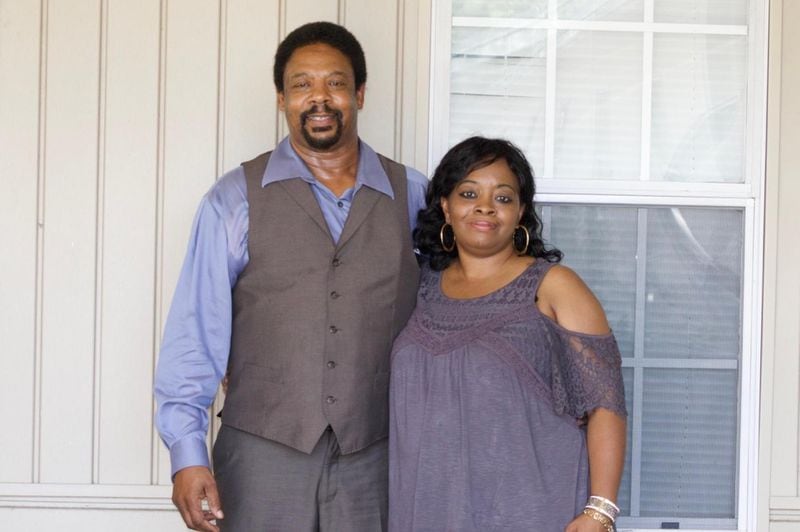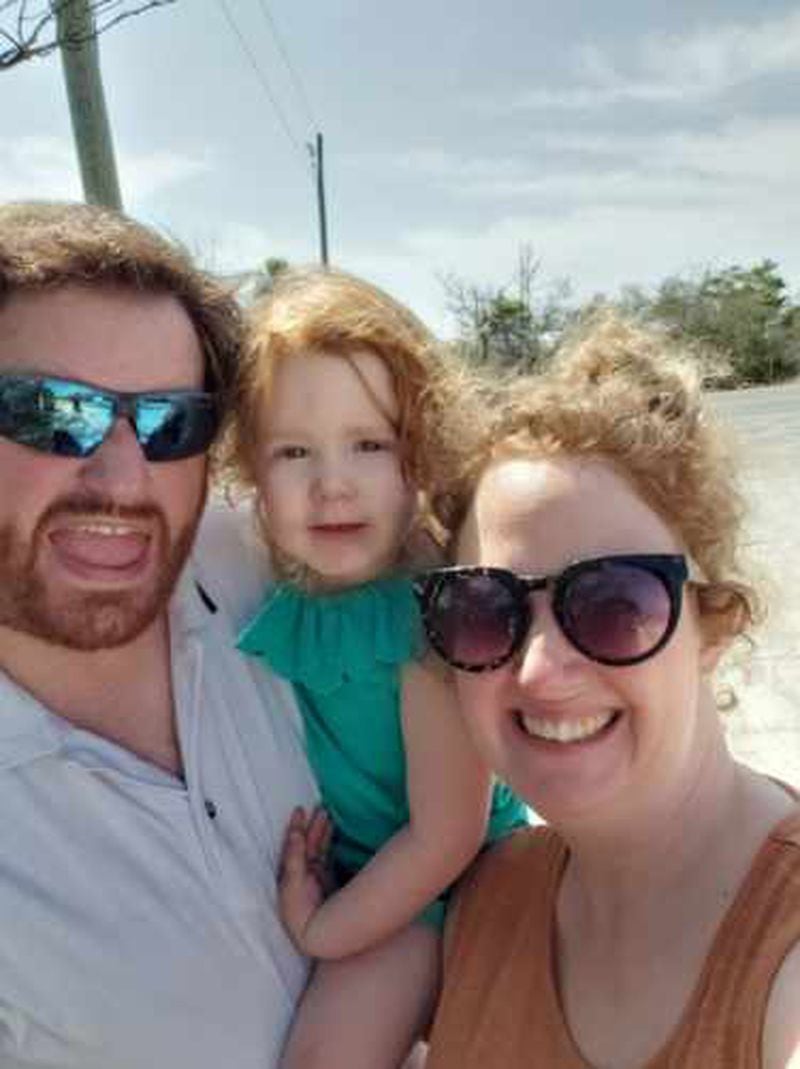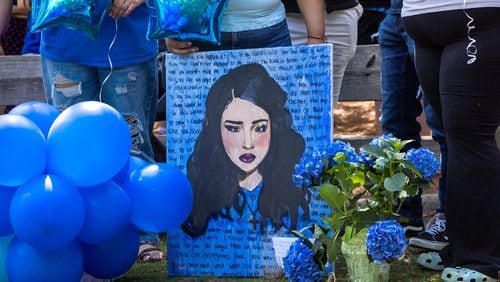When Austin Ludwig looks back on his time in foster care, he sees older adults as a major factor in his security and ability to thrive. Today, as a staff member with WinShape Homes, he wants seniors to understand something when it comes to serving children in the system.
“My encouragement to any senior citizen in Atlanta is to say, ‘You’re not irrelevant,’” he told the AJC. “I think that there’s sometimes a fast pace in culture and technology and social media and all of these things — it can be overwhelming to keep up with where culture’s at, but I would just say that you’re not culturally irrelevant and young people … in the child welfare area and outside of that need involvement, they need encouragement, they need direction, wisdom.”
May is National Foster Care Month, and it’s also a time to reflect on the numerous ways Atlanta’s seniors are impacted by and can influence the yawning need that accompanies a population of young people like the child Ludwig was.
Meeting challenges
Ludwig found himself in Georgia’s foster care system at age 14.
“We were just kind of, like, always on the edge of ending up in foster care,” he recalled looking back on his childhood.
Credit: Contributed
Credit: Contributed
When his father was arrested and incarcerated, Ludwig went to a state-run group home for boys.
“I was blindsided,” he said about the sudden turn of events.
His first foster home was in Floyd County with a couple in their early 70s. Although he grew comfortable with them over time, moving in was yet another big change.
“You grow up being taught, ‘Hey, don’t talk to strangers,’ and then, all of a sudden, as a child, you are placed in a home, and you are expected to trust these complete strangers to care for you,” he said. “It’s just a very jarring experience at first.”
Having fostered for the past 18 years, Kenneth and Sandra White, of southwest Atlanta, are familiar with this dynamic. They’ve served more than 50 kids, Sandra White said — many sibling groups, young children, medically fragile kids.
Credit: Contributed
Credit: Contributed
“(They’ve come) straight from the hospital … two to three days old up to teenagers,” she said. “The thing that really, really keeps us going is just knowing the number of children that are out there that need a safe place, that need a home. There are many, and you still hear on the news how many children just need a placement … We know that we can serve but so many in our home. We know that as long as we keep our doors open for as long as we can, we’re serving … we feel like it’s the Lord’s work.”
After nearly two decades of continually opening those doors, the couple still finds it challenging to see kids hurting.
“It’s always tough when some kids come with emotional distress … the trauma that they’ve been through,” Kenneth White said.
And yet, the decision to foster came naturally to them as they shared a love of children.
“I come from a family where fostering was just a way of life,” Sandra White said. “I grew up with foster kids around, and they were some of my closest friends when I was younger. It’s always been a love of mine.”
They’ve worked with Georgia Agape for the duration of their tenure as foster parents. Sandra White said the agency, which identifies itself online as a “faith-based, nationally accredited, not-for-profit, social services organization,” works to place children in state custody in foster homes and then support those foster families.
Georgia Agape, she said, often assists with recurring needs like getting the children to doctor’s appointments. But more hands are always welcome.
Credit: Contributed
Credit: Contributed
Awareness and involvement
Respite care is one way approved and trained individuals can help, White said, explaining that respite providers might step in for a week or even an afternoon of childcare while foster parents take a breather or attend to personal matters.
Ludwig, now 29, is on staff with WinShape Homes, which, according to its website, homes.winshape.org, provides support to churches where congregants feel called to foster. He calls respite care “an opportunity of middle ground” for those who aren’t opening their homes for fostering full-time. Applicants can go through the screening and training with private agencies like Georgia AGAPE, according to Sondra Culbert, director of social services for that organization.
“It’s the same process as a full-time foster parent,” she said. “Respite is just part-time whenever they’re able to do it.”
Simple awareness, Ludwig said, goes a long way in support, too.
“Explore discovering what the foster care system looks like, what the needs are,” he said. “Every community’s different.”
Meeting needs might be as simple as bringing Division of Family and Children Services case workers donuts once a month to show appreciation, he suggested.
And, of course, some seniors have the option to foster.
“I would say, first off, that you’re not too old to become a foster parent if you’re 55 and up,” Ludwig said. “I would just say do it if you feel a nudge. If you have the margin to do it, then I would say explore doing it.”
Donations and time
Rachel Ewald, founder and executive director of the Foster Care Support Foundation in Roswell, has herself fostered more than 50 children. The nonprofit, she said, began in 2000 to provide help for families with custody of relatives and also for foster families receiving the least in government financial aid.
There are three ways the public can support foster children through FCSF. First, Ewald said, organizations, businesses, and individuals can sponsor a child for $25 a month. Second, the Foundation welcomes volunteers.
“They do a tremendous amount of work to help us, and that’s what makes us successful — it’s our communities coming together to help children,” she said.
Finally, donations of goods like clothing and school supplies, she said, help with children’s everyday needs. Like Ludwig, Ewald encouraged seniors with the means to consider fostering — especially older teenagers.
‘A life-changing experience’
It was that willingness to step up for older kids that eventually saw Ludwig into a WinShape Homes group home, and the experience, for him, was transformative.
He was 15 when he learned he would not be reunited with his biological family.
“I was going to be in foster care for the rest of my teenage years until I aged out of the system,” he said. “People don’t usually adopt teenagers. We want to see that happen, but it’s very unlikely, so I just was, like, sitting with that reality.”
Some congregants at a local church where he and his sister had been involved years earlier learned of his situation and began working to help. He eventually entered a WinShape group home hosting 10 or 12 kids, he said, and that’s when his life changed drastically.
“Something I noticed during the first year of moving into WinShape Homes as a foster kid was that there were parents who were interested in me,” he said. “They weren’t venting or talking about themselves. They would ask me questions about myself and my day.”
The effects of this new dynamic in the home of Doug and Julie Bowling, of Rome, were incredibly impactful after he adjusted.
“It was an amazing experience — a life-changing experience,” he said. “The normalcy, so to speak, of what I experienced, was the most jarring thing at first — being in a clean home, having my own bed after sleeping on a couch or a mattress on the floor … It was nearing what family should look like, and I experienced this unconditional love.”








